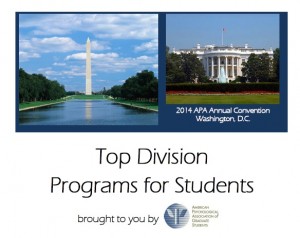 So, you survived “The Hunger Games” and landed an internship. The rest is downhill from here on out, right? If you are likely to be in the market for a postdoc, maybe not. Read on to see how I discovered the postdoc search to be much like an internship sequel that rivals the Hunger Games.
So, you survived “The Hunger Games” and landed an internship. The rest is downhill from here on out, right? If you are likely to be in the market for a postdoc, maybe not. Read on to see how I discovered the postdoc search to be much like an internship sequel that rivals the Hunger Games.
1) Just when you’re starting your Victory Tour, your name gets called again. Like Katniss and Peeta, you arrive after the internship “games” grateful and relieved, ready to bask in the victory. Almost as soon as your anxiety comes down and you aren’t looking over your shoulder every few minutes for another obstacle, your name gets called again in the lottery. It’s time to select a postdoc. Not more than a couple months into your internship training, you have to reassess your skills, ask for reference letters, and choose sites. I have heard of some interns being asked on day one where they want to go on postdoc. In many cases, you haven’t even obtained the skills or experiences you need for postdoc upon application. This is especially true if you are slotted to complete specialty training in the second half of the internship year and are planning to apply for a specialty postdoc (e.g., trauma, neuropsychology, geropsychology). It’s hard to focus on the skills and training you are taking on during internship, your anxiety increases again, and your focus is on the next games instead of where you are. But, unless you’re positive you won’t need a license, know you’ll move to and stay indefinitely in a state that has passed sequence of training (i.e., you don’t need a postdoc), or are open to securing an informal postdoc, your name will be called again. It’s time to buck up for round two.
2) First to the Cornucopia gets the best tools. Similarly to the Hunger Games, in round two you’re at an advantage if you are among the first to, well, everything. Depending on the size of your internship class and supervisor pool, being the first to ask for recommendation letters is to your advantage as some people (think Training Directors) may be inundated with asks. For sites with rolling applications, the first to apply are the first interviewed, and therefore the first offered positions. Unlike internship, you are almost always competing for one or two slots, and the competition is steep. When you are offered an interview, sometimes you get a single day or a few days to make it there. For one site, I received an interview offer Thursday and was asked if I could come the next day to interview. If not, my next choice was Monday, Tuesday, or nothing. If you have things holding you back from the postdoc Cornucopia (e.g., limited time off from internship, lack of funds, other interviews), it’s even harder to get there first.
3) The quicker you figure out the Arena’s hidden traps the more likely you’ll survive. The Gamemakers of postdoc don’t always play fair, and there are lots of traps along the way. APPIC has a postdoc matching system that is highly underutilized by sites and the result is a kind of free for all. Depending on when one site’s applications are due and interviews are set, it is very possible that you could have an offer for a postdoc at one site before you even get an offer to interview at your first choice. Within the VA system, you typically have 24 to 48 hours to accept or decline an offer, putting applicants in the impossible position of accepting an offer that may be less preferable or chancing it and hoping they get a more preferred spot later. The alternative is accepting an offer and backing out later, something that is not looked on favorably for a young professional, but the system almost forces people into. Because there is no set notification date, sites are in direct competition to grab stellar applicants, and many sites continue to push their applications sooner in the year. In the VA system, there has been a push to follow uniform notification day, but on more than one occasion I was blatantly told that sites were not following the recommendation so they could make offers before others. It also seems more and more common that a site’s current interns are preferred and offered positions. While intuitively a known entity may be preferable to an unknown entity, sites cannot say outright that they prefer their own interns. If you are unaware of this like I was, you will spend hundreds of dollars buying plane tickets, hotels, food, etc. to attend an interview for a position you are unlikely to get. Many contend that in-person interviews are the way to go, but I highly recommend considering alternative options (e.g., telephone, skype) if the site allows for it. Ask training directors who their most recent postdocs are and where they came from before you invest more precious time and money. Lastly, in my experience many VAs are moving to competency-based interviews. For people like me who are pursuing specialty postdocs but aren’t getting their respective specialty rotation on internship until the last 6 months, you are at a disadvantage. I felt less confident in my ability to answer specialty-based questions and couldn’t provide the depth of case examples from internship in trauma that many of my competitors could. While most sites say they understand your situation, it makes sense to pick the more experienced person. Study up on your specialty (e.g., updated literature), prepare detailed case examples, and ask your internship site if there is any flexibility to add in specialty experience to your first rotation.
4) You need allies and gift givers in the Arena. Just like internship, you need good mentors and allies to help you make decisions, improve your application, and write letters of recommendation. Hopefully you have kept in contact with a few supervisors from graduate school, because odds are you will be in need of another letter of recommendation from someone who has known you longer than a couple months. You’ll need mentors to help you decide which postdoc is best for your training needs and long term goals. Your internship cohort can be a great place to find support and proofread cover letters. Similarly to internship, you are likely going to have to spend a money that you don’t really have based on an internship stipend. Ask friends to crash at their apartments, save money as soon as possible, and look for alternative travel options (e.g., bus, rental car, train/amtrak).
5) Right when you feel like you are about to be destroyed by a jolt of lightning, your genius saves the day. The stress and anxiety of postdoc are considerable, particularly if you are juggling more than one offer in the span of a day or two while waiting to hear from other sites. You may have just moved to a new city and are already having to consider where you will move next, possibly for another single year stay. If you have a significant other or family to consider, the stress is even higher. While waiting for interviews, it may feel like you won’t find a good fit or even get an offer. But, if you are prepared and thoughtful, the odds are likely in your favor to land a good training spot. No matter what happens in the first round, don’t panic. Tons of sites come up with postdocs at the middle and end of the year, so you will have other options. Again, however, for many specialty training programs, the best sites have a standard application process that begins early in the year.
I can only speak from my own experience, but I found the postdoc application process to be more stressful (over a shorter time period) than internship applications. I felt relatively confident in my ability to obtain an internship, but I did not feel as prepared for the postdoc system. It was a shock to fall right back into feelings of insecurity and uncertainty so soon after the internship match. It’s also important to consider the sites and type of training you are looking for in a postdoc. I was strictly in the VA system and applying only to trauma-focused training sites. Other opportunities (e.g., informal postdocs, postdocs later in the year) exist for those who may have less specific training goals. Regardless of your training needs, good luck fellow travelers. May the (postdoc) odds be ever in your favor.


![MP910216391[1]](http://www.gradpsychblog.org/wp-content/uploads/MP9102163911-300x261.png) One of the easiest ways to increase your productivity in graduate school is to collaborate. By collaborating, you can maintain a pipeline of papers. But as a graduate student, it may be hard to know who to approach for collaborations and how to approach them. You also have to be cautious about keeping your mentor in the loop and happy.
One of the easiest ways to increase your productivity in graduate school is to collaborate. By collaborating, you can maintain a pipeline of papers. But as a graduate student, it may be hard to know who to approach for collaborations and how to approach them. You also have to be cautious about keeping your mentor in the loop and happy.
 So you’ve registered for the convention and booked your flights and hotels. You have tried to look at the monster programming book but are feeling overloaded and overwhelmed. What is a grad student to do? Have no fear! The APAGS Convention Committee has some untold secrets to navigating convention!
So you’ve registered for the convention and booked your flights and hotels. You have tried to look at the monster programming book but are feeling overloaded and overwhelmed. What is a grad student to do? Have no fear! The APAGS Convention Committee has some untold secrets to navigating convention! Consider going to one of their business meetings. You can learn a lot about current topics and become more aware of potential opportunities for graduate students.
Consider going to one of their business meetings. You can learn a lot about current topics and become more aware of potential opportunities for graduate students.![MPj04025130000[1]](http://www.gradpsychblog.org/wp-content/uploads/MPj040251300001-300x300.jpg) Free food is everywhere at convention! For example, graduate students can come to the APAGS suite for the Food for Thought breakfasts where they can enjoy breakfast while conversing with some of the field’s most influential psychologists. This year we have Dr. Robert Levine, Dr. Mitchell Prinstein, and Dr. Robert Sternberg. Students can also find free food at some of the presentations. Keep an eye out for large groups of people!
Free food is everywhere at convention! For example, graduate students can come to the APAGS suite for the Food for Thought breakfasts where they can enjoy breakfast while conversing with some of the field’s most influential psychologists. This year we have Dr. Robert Levine, Dr. Mitchell Prinstein, and Dr. Robert Sternberg. Students can also find free food at some of the presentations. Keep an eye out for large groups of people!
 So, you survived “The Hunger Games” and landed an internship. The rest is downhill from here on out, right? If you are likely to be in the market for a postdoc, maybe not. Read on to see how I discovered the postdoc search to be much like an internship sequel that rivals the Hunger Games.
So, you survived “The Hunger Games” and landed an internship. The rest is downhill from here on out, right? If you are likely to be in the market for a postdoc, maybe not. Read on to see how I discovered the postdoc search to be much like an internship sequel that rivals the Hunger Games.